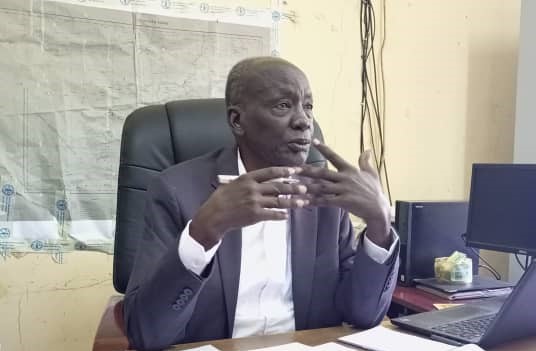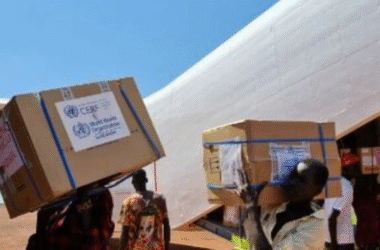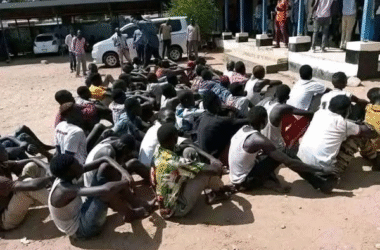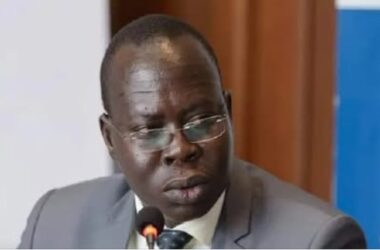By Bida Elly David/ Kidega Livingstone
National Bureau of Statistics (NBS) grapples with financial difficulties after nearly a decade of limited government support.
Former chairperson of NBS, Isaiah Chol revealed that the institution’s life span would have come to an end without support from development partners.
The outgoing NBS Chairpersons was speaking yesterday, during the reception event for the incoming chairperson at the institution’s premises in Juba.
Aruai said that he battled numerous challenges to ensure that the institution kept its standard as far as services were concerned.
“I appreciate the UNFPA for having cooperated with us. We had problems with the internet, but with their support, they were able to fund it, costing 3,000 dollars (three thousand United States dollars),” he stated.
The former NBS boss noted that the institution only receives 4,000 USD as allocations for operation and running the activities of the institution, respectively.
“The only ministry that used to support the institution was the national ministry of petroleum as well as the development partners, especially the UNFPA and partly the United Nations development programme in South Sudan,” he noted.
Aruai, further underscored that the national bureau of statistics is a political institution that needs patience and endurance.
He urged the new chairperson to stand firm, saying there will be numerous challenges that he will encounter in due course of time.
He called on the new chair to lobby for funding from the central bank in order to carry out their activities.
“You will not get data unless you invest in it. How do you expect to get information that you have not invested money in?” he said.
He said you cannot use the weight of 2009 in 2024; how can you conduct a census if you don’t have money?
“We would have asked for funding from commercial banks, but unfortunately they are not South Sudanese but rather from foreign countries,” he said.
He stated that corruption in South Sudan is one of the challenges that hinders the progress of most institutions.
“South Sudan needs to come out of corruption since it is the second country after Somalia in the world,” he recited.
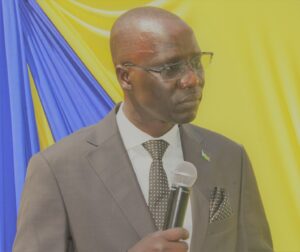
Meanwhile, at the takeover ceremony, the incoming NBS boss, promised to fix the resource constraints that his predecessor had faced in data gathering, analysis, and interpretation.
Dr. Augustino Ting Mayai said South Sudan still lacks accurate crime and wealth statistics, saying there is a need to consider it crucial.
“We know that the Bureau of Statistics plays a very big role in making decisions through data in the national economy.
The incoming NBS chief set a benchmark to ensure the conduct of census as the country heads for elections.
According to Mayai determining the population data of citizens is very crucial to policy and decision-making.
“Our South Sudan data demography is hardly analyzed, and as we speak, the Census book is not yet out. When the announcement is done, which the international community does, the material does not get out to people,” he said.
For this to happen, Mayai stated that prioritizing technology for data entry is very significant to determining statistics.
“Our country, like other countries, needs statistics to describe social, economic, and environmental situations, and these processes help us improve the wellbeing and opportunities of our citizens,” he noted.
He stated that it also plays a greater role in planning, governing, and developing a country, particularly South Sudan as a young nation.
“It provides, in particular, policymakers with the opportunity to better form their decisions in delivering services to the people,” he said.
He stated that South Sudan has baffling issues with identifying crime and birth statistics, saying they need to be improved.
“Crime and gender statistics are areas that we need to leverage; there will be a need for sufficient resources to improve the bureau’s human resources; the resources to be mobilized need to be used properly,’’ he said.
The chair stated that material for the Census announcement should have been shared equally with people, policymakers, and governors.
“I would like our think tanks nationwide, our universities, and any other entity that produces data to join us in building our national statistical system,’’ he added.
He said South Sudan is part of the international community that ought to meet its obligations through support.
He noted that building the national statistics is a collaborative initiative of all stakeholders across South Sudan.
On his part, Joseph Geng Akech, the national minister of youth, urged the NBS’ new boss to cooperate with key stakeholders and partners to aid him in achieving his goals.
Mr. Geng emphasized that considering elections through the census is a key role that the NBS needs to play.
“The NBS should be making sure that elections are held on time, and we’ll be coming for your support in making sure that the data that’s available for such decisions is available,” he stated.
The youth minister stated that NBS is an important government entity to be supported since it is an institution whose work is proven through evidence.
“Working in partnership with the relevant stakeholders, especially the private sector, academia, and government, will help the national bureau of statistics achieve its objective,” he underscored.
Moreover, Geng urged the chairperson to engage his staff in capacity building through trainings to gain more experience in data collection.
“Initiate programmes to build the capacity of your staff; expose them to the experiences that you have, but more importantly, give them the motivation they need so that they can grow,” he urged.

